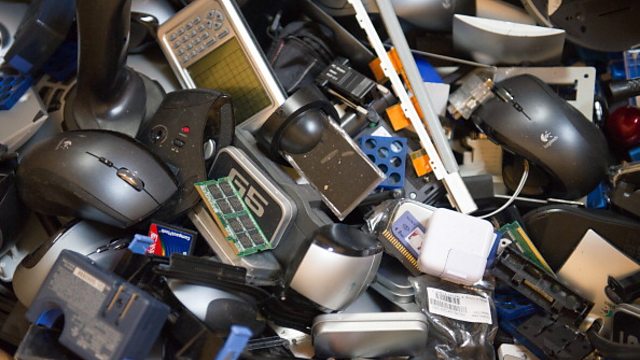
Planned obsolescence
New research examines the ability to implant false memories into ordinary people and points to circumstances under which police officers can extract false confessions
How is it possible to remember something initially and then change your account of the experience later on? Possibly, giant swathes of your own personal history are partially fictional if not completely false. The problem isn't that our memory is bad, but that we believe it isn't. Adam talks to forensic psychologist Julia Shaw whose astonishing new research examines the ability to implant completely made-up rich false memories into ordinary people in a lab setting and points to circumstances under which police officers can extract false confessions.
Cancer and eating
Undergoing cancer treatment often makes eating difficult, yet having a good balanced diet is really important for cancer patients in order to overcome their illness. This week Andrew Luck-Baker visits one of the world’s top cancer hospitals, the Royal Marsden in London, and was there when one of its patients, Simon Drummond Brady, took his first taste of food for a month. What got him to do it was a recipe from the Royal Marsden Cancer Cook Book, which has just been published this week. It is filled with recipes from professional and celebrity chefs, and edited by the hospital’s consultant dietician Dr Clare Shaw.
Tech Lessons from Ebola
What are the lessons to be learnt from technologies’ involvement in the handling of the Ebola crisis? Juliana Rotich from Ushahidi in Kenya reviews local, national and international efforts to harness the power of technology in the fight against Ebola.
Climate Change and Infectious Diseases
The science and technology being used to track and tackle the link between two huge global topics - climate change and infectious disease. More chaotic weather and a warmer world represents a potentially serious threat to future human health. The behaviour of disease vectors such as mosquitoes is known to be very sensitive to temperature and rainfall, for example, so it seems unquestionable that climate change will affect many diseases, such as Malaria, West Nile Virus, Chagas disease and Dengue fever, which are transmitted via insect vectors.
Throwaway society
Hundreds of millions of computers, mobile phones and televisions are thrown away every year around the world. In this week’s Discovery Gaia Vince will be looking at the reasons behind this rapidly growing mountain of electronic waste and asking, who is responsible? The manufacturers or the consumers? When our gadgets break, maybe we should just be repairing them. And Gaia attends a party where people are fixing stuff for themselves.
Twins in space
Adam meets Mark Kelly, one of NASA's twin astronauts taking part in a year-long space experiment to examine the impact of space travel using identical twins as subjects. With one twin orbiting on the International Space Station whilst the other remains confined to Earth, the aim is to examine how individuals with the same genetic profile respond to radically different environments - in particular the genomics of humans as they prepare to move away from their home planet.
Science Hour was presented by Jack Stewart with comments from Smitha Mundasad
Producer: Deborah Cohen
Photo Credits:
Photo: Planned obsolescence Credit: Getty Images
Last on
More episodes
Previous
Chapters
-
False memories
New research examines the ability to implant completely made-up memories in people
Duration: 08:17
The Royal Marsden Cancer Cookbook
A new book to help cancer patients eat well
Duration: 07:25
Tech lessons from Ebola
Juliana Rotich discusses the tech lessons from the fight against Ebola
Duration: 07:16
Climate change and infectious disease
The technology used to tackle the link between climate change and infectious disease
Duration: 08:48
Throwaway society
The reasons for the rapidly growing mountain of electronic waste and who is responsible
Duration: 12:22
Twins in space
A year-long experiment to see the impact of space travel using identical twins
Duration: 05:18
Broadcast
- Sun 22 Feb 2015 14:05GMT���˿��� World Service Online
Podcast
-
![]()
Unexpected Elements
The news you know, the science you don't

